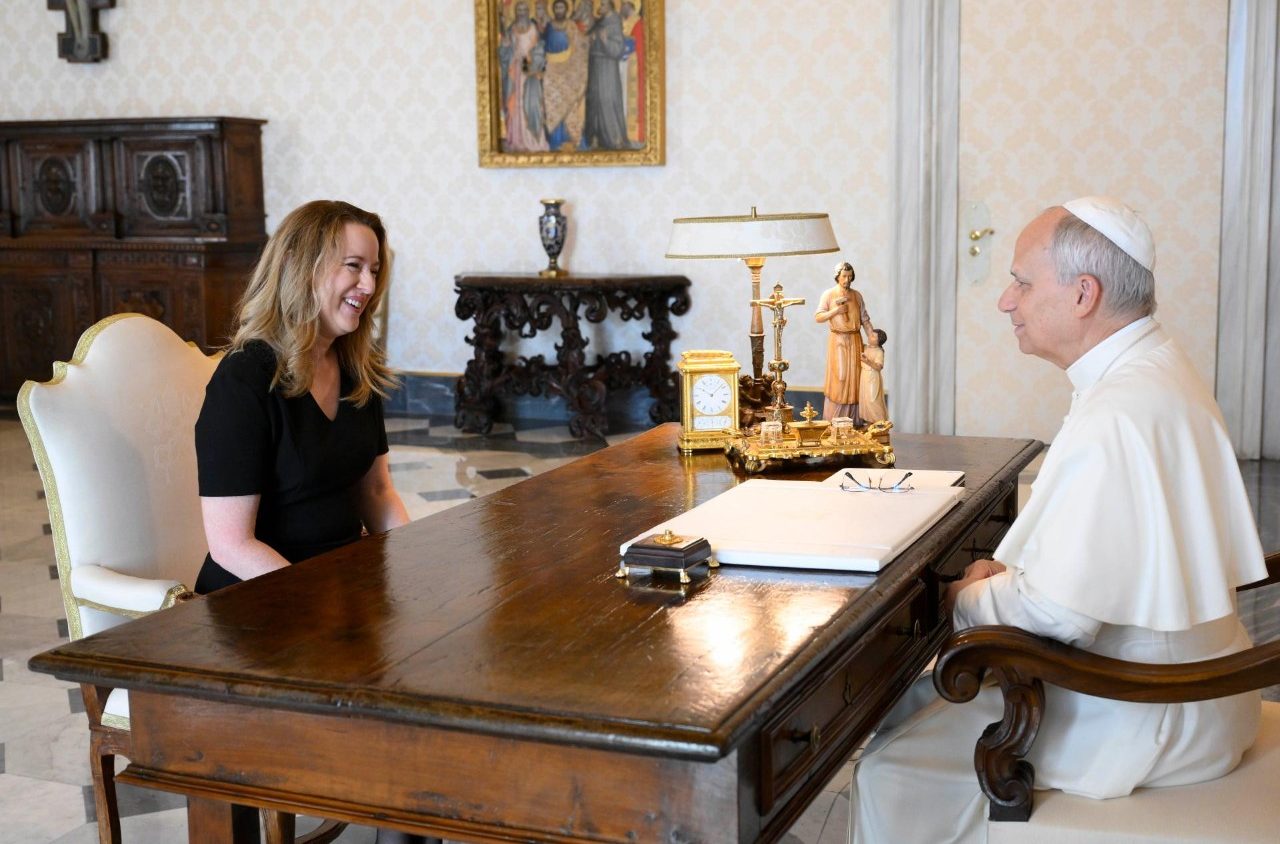After her audience with Pope Leo XIV, Amy Pope, Director General of the International Organization for Migration, speaks to Vatican News about the Catholic Church’s moral authority and practical outreach to advance the rights of migrants.
By Devin Watkins
Pope Leo XIV met on Thursday with the Director General of the International Organization for Migration, Amy Pope, for a private audience in the Vatican’s Apostolic Palace.
Afterwards, Ms. Pope spoke to Vatican News about her meeting with the Holy Father and her agency’s mission to support the rights of people on the move.
Q: You had an audience with Pope Leo in the Vatican today. How was your encounter with the Pope? What global migration issues did you present to the Holy Father?
[Ms. Pope:] We started first with discussing the impact of the humanitarian funding cuts on the work that we and other organizations are doing around the world.
We are seeing at this moment in time when the need is quite high and in fact growing as a result of conflict, as a result of the impacts of climate disaster, as a result of increased poverty. More people are on the move than ever before.
Following an audience with Pope Francis, Amy Pope, the Director General of the UN International Organization for Migration, praises the Holy Father’s passionate advocacy regarding …
But at the same time, unfortunately, many of our key donor governments have been cutting support for humanitarian response. For our organization, we’ve seen an impact on about nine million people who’ve either lost support or have had reduced support. And so the impacts from a human point of view are catastrophic in some cases.
So, we spoke about the need for the Church to work together with organizations like ours, which serve people on the most basic needs to advocate together to continue to build awareness and support for them. We also spoke about the importance of reframing the issue of migration at a moment in time where polarization is at an all-time high.
There’s still resonance, very much so, in the Church’s message about migrants being a source of hope and migrants being the embodiment of what is the Christian journey.
This is a pilgrimage that we all make, whether spiritually or physically, and are task is to find how to capture those stories, how build a community of support and awareness for what migrants are facing, and how we can be part of a more inclusive society.
Pope Leo shakes hands with Ms. Pope (@VATICAN MEDIA)
Q: You’re taking part in the “Refugees & Migrants in Our Common Home” conference, which discusses how to educate people about migration topics. What are your hopes for this conference, and what kind of issues are you presenting?
Number one is to remind everyone of the humanity of the mission. We all have some migration story somewhere in our history. We all share sort of common human needs and dignity.
So, I would like to help reorient the conversation around the humanity and dignity of what we do and what we strive to do as an organization. And then I’d like to lay out some very concrete ways that universities, the academic community, students, can be part of this effort.
Some of it is around research and just presenting facts that counter some of the misinformation that’s out there. This information, for example, includes the fact that most migrants are moving within their region; they are not leaving their own region.
Most migrants are being hosted, especially those displaced by conflict, where climate impact are hosted by very, very low income countries that do not necessarily have the capacity to provide support. So, how do we provide support to stabilize communities on the move?
We’ll also speak about building awareness, raising advocacy, and ensuring that communities everywhere, whether they’re in universities or in societies or in Churches, can work together to provide more support for those in need.
Q: In his brief papacy so far, Pope Leo has already expressed firm views on migration, saying they are “messengers of hope” and that they remind the Catholic Church of her pilgrim dimension. How does his voice sustain your work at the UN, especially at the International Organization for Migration?
It does so in a couple of ways. Clearly, he provides a level of moral authority to communities around the world. And that’s really important at this moment in time, when the issue of migration has become, as I mentioned, hyper politicized and polarized.
We want to reorient the conversation back to what is human and how we as humans can connect and provide support, how we can help integrate communities, how we can enable migrant students, for example, to get access to education or migrant workers to get access to jobs that pay properly, where they have proper treatment.
So, part of it is using the moral authority that the Church brings. But then there’s something much more practical, which is how each individual parish, each individual community can serve as an example of how to work and support and protect migrant communities.
And we can bring it down to the micro level where the Church can be so effective in changing an issue that may seem very abstract at the global level, or it may even seem threatening in the global context. But when we bring it down into the local context, you can see very clearly how we can create communities that are more supportive of all people.
I think our partnership with the Church is a critical one, and it’s something that we at IOM have really been emphasizing.


